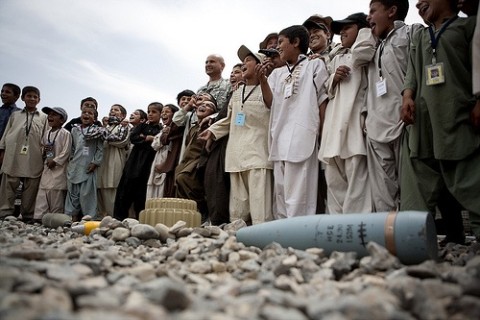When the shooting stops: Criteria for a just peace

Destruction, displacement and death—these were the consequences of war in the prophet Ezekiel's time. After he was sent into exile with the Hebrew people in 597 BC, Ezekiel predicted the devastation of Jerusalem. Although their military defenses had been successful in the past, Ezekiel admonished the people about any illusion of security and warned against false prophets who were saying, "'Peace,' when there is no peace" (Ezek. 13:10). His dire warning came to pass a decade later with the destruction of Jerusalem.
Destruction, displacement and death—sadly, these evils continue to accompany war today, including putatively just wars. Hamid is a 43-year-old Tajik who lives in Faizabad, the capital of Badakhshan in northern Afghanistan. In her book The Wake of War, French journalist Anne Nivat recounts her 2003 visit to Hamid and his family in their house made of baked clay bricks. Hamid described himself as "an angry man: angry at his government, which he considered weak and cowardly; angry at the international community, which is not making the right strategic choices in Afghanistan; and angry at his fellow citizens, who are not managing to reason any differently from what the recent historical situation has inculcated in them." He expressed some hope for his six-year-old daughter. He wants her to go to school and to find work in a field of her choosing. But his 19-year-old nephew Uman muttered, "As soon as I've finished school, I'll leave this goddamned country, which has had nothing but wars and no future."
More of war's destruction is reported by Mohamed Moussa, who resides in al-Hilla, about 60 miles south of Baghdad. Moussa told British reporter Robert Fisk that on March 31, 2003, silvery objects "like small grapefruit" fell from white canisters onto his neighborhood. "If it hadn't exploded and you touched it, it went off immediately," he said. "They exploded in the air and on the ground and we still have some in our home, unexploded." On that day cluster submunitions killed 38 and injured 156 civilians in al-Hilla. The remaining unexploded weapons have "the power to rend a community's social, economic, and environmental fabric."




